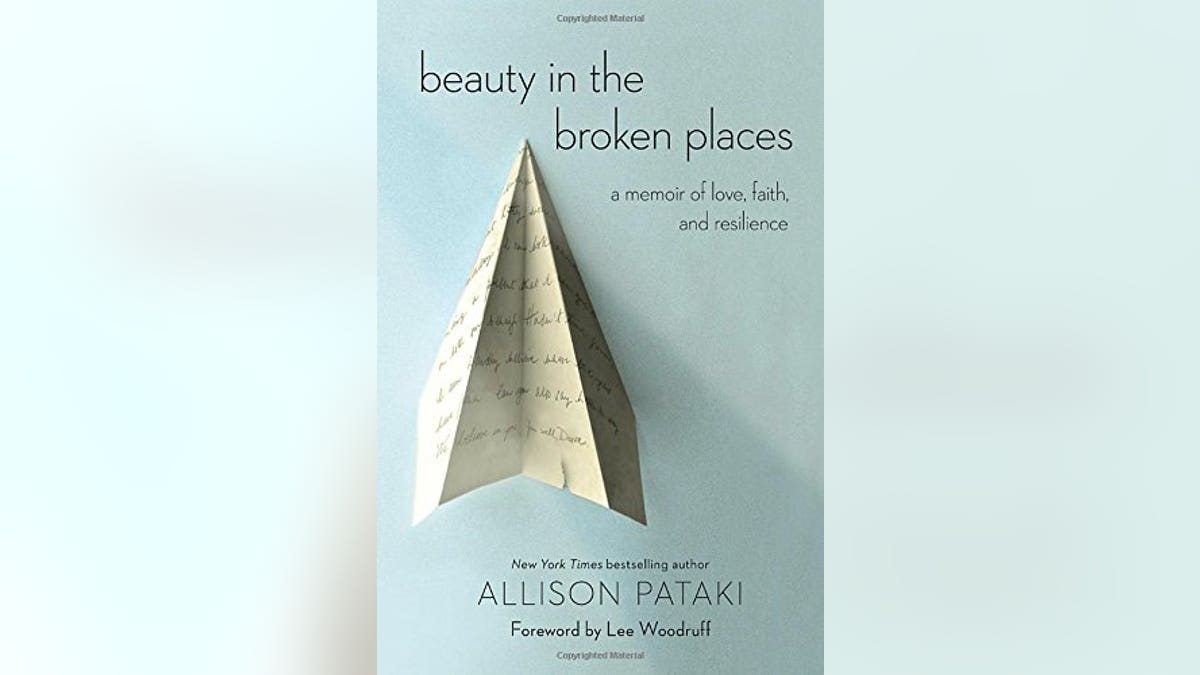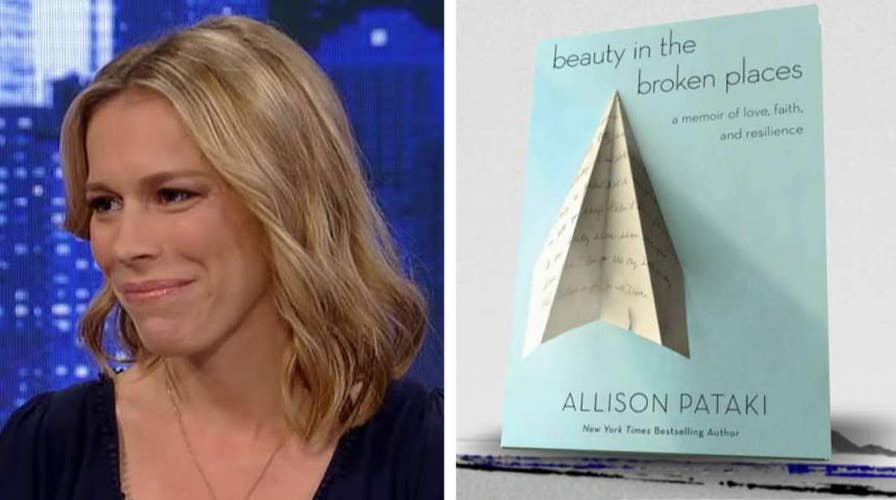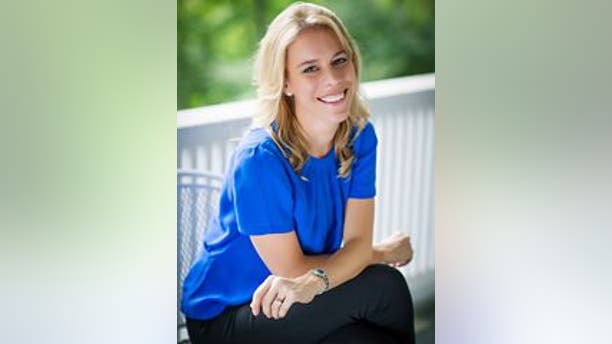Author opens up about husband's stroke recovery journey
Allison Pataki discusses her memoir 'Beauty in the Broken' and what happened after her husband suffered a stroke on a flight.
For as long as I can remember, I knew I wanted to study medicine. My father was a doctor, and I loved the idea of studying science and math and then going into a profession where I could serve others and take satisfaction from my daily work – medicine seemed like so much more than just a day job. It felt like a calling.
My life had a certain pattern to it: work hard, achieve, and then pick from an array of choices. With hard work, application, and effort come options: the ability to choose your next step and, to a large extent, to choose how you want that next step to look. Right? Not in the case of what happened next. The reason I am writing this is because of something that happened to me. Something that I never chose, never would have chosen, and never would wish on my worst enemy. It was unexpected and catastrophic, yet it has taught me more than all of my other years of schooling and training combined.
In June 2015, at age 30, I suffered a stroke. A very rare, near-fatal stroke. A bilateral thalamic one. That means it affected both sides of the thalamus in my midbrain. The thalamus coordinates signals all across the complex structure of the cerebral cortex. Some people call it the “quarterback of the brain.” Because of its critical function as a connector of pathways, it is also sometimes referred to as the brain’s “Grand Central station.” And I had both sides of it affected. Not just one side, as occurs with most strokes. The trains in my brain were completely run off the tracks.

The thalamus is not a typical region affected by strokes because it receives a very plentiful blood supply through many different arteries. But I had a rare anatomic abnormality called an artery of Percheron, where only one artery, instead of many, carried blood to my thalamus. I had one big pipe, while most people have many smaller vessels.
I was on an airplane, where almost everyone gets an occasional blood clot in their legs. Most such clots stay put and dissolve, but mine decided to break off into the bloodstream. Still no big deal, as such clots usually go up to the right side of the heart, then into the lungs where they are trapped and dissolve, causing little or no harm. But my heart had a patent foramen ovale, a hole between the left and right atria of the heart. 100 percent of us have a patent foramen ovale in the womb to shunt blood through the placenta rather than the lungs. But this foramen ovale usually closes within minutes after birth. Eventually, your heart epithelializes new tissue over it. But, in 20 percent of people or so, it stays open. I fall into that 20 percent.
Basically, after a lifetime of being incredibly lucky, all these unlikely things aligned in one moment; I won the world’s worst lottery ticket.
So that ovale allowed the blood clot to cross my heart and thus skip my lungs to enter my systemic circulation. After your heart, the most common spot for blood to travel is back down to your legs. Especially when you are immobile. But this blood clot did not go back to my legs. It went up to my neck. It did not stop there though. Instead, it went past my neck and up to my head. It did not go to my mouth or my nose or my eyes or my ears, as it could have with very little effect. Instead, it went to my brain. Already a million to one odds. Then it did not go to the frontal lobe of my brain or the parietal lobe or the temporal lobe or the occipital lobe. It went to my thalamus. And there it met that very rare artery of Percheron, and this clot blocked all oxygen to my thalamus and, thus, threatened to end my life.
In four years of medical school and three years of orthopedic surgery residency, I had not heard of an artery of Percheron. I had not known a single patient to have one. Basically, after a lifetime of being incredibly lucky, all these unlikely things aligned in one moment; I won the world’s worst lottery ticket.
My event occurred on a flight from Chicago – our hometown at the time – to Seattle. After an hour, my vision became blurry. I turned to my wife and asked her if my right eye looked weird. She said yes, it did. My right pupil was asymmetrically dilated. It was then that my pregnant wife asked if I was having a stroke. She was not serious, but I was when I told her that I might have been. We asked for a medical expert, and a nurse on the airplane quickly came to my side and asked a few questions. I lost consciousness shortly thereafter.
We were only halfway through the flight, and, with my life in danger, they emergency-landed in Fargo, ND. We were transported to a hospital, and I was whisked into the ICU while my wife spent the night in the ER alone, wondering whether I would survive.
I was whisked into the ICU while my wife spent the night in the ER alone, wondering whether I would survive.
I was stabilized in that Fargo ICU, and my parents and in-laws flew out to be with us. I woke up from the coma the next day, for just a few minutes. Several days later, I was conscious enough to be awake for brief periods of time, and my family transported me via air ambulance from Fargo to Chicago, back to Rush, where I worked as a resident.
In those early days, my mind was completely scrambled. I slept the vast majority of the time. The first person I recognized was Alli. Thank God. She was five months pregnant with our baby girl at the time. We had been traveling to Seattle to visit two of my brothers there and planned to go on to Hawaii. I was on my research block of residency and had time for the trip of a lifetime with my wife. It was to have been our “babymoon.”
I don’t remember the first three weeks after my stroke. I was basically living the life of a newborn infant. My beloved Chicago Blackhawks won the Stanley Cup, and I apparently watched every minute of it. But I don’t remember it.
At first, I could not walk, swallow, or regulate going to the bathroom. Holding a fork was out of the question, as was eating solid foods. I could not tell you the names of simple objects like a pen. I could not remember that I was having a daughter.
At first, I could not walk, swallow, or regulate going to the bathroom. Holding a fork was out of the question, as was eating solid foods. I could not tell you the names of simple objects like a pen. I could not remember that I was having a daughter. I could not think of a name that started with the letter “A” – even though my wife’s name starts with the letter A.
Those who loved me had to wait and hope that my brain would do the healing work that needed to happen while I was in the ICU. I was visited by many co-workers and friends, but I don’t remember it. My first memory was of walking down the Chicago boardwalk with my friends Russell and Peter. I had a lot of great friends and family supporting me. My dad and mom were so incredible in their support of me, and my five brothers were outstanding. Alli’s family was also loving and supportive through the many months of rehab. I recognize how fortunate I was in that.
Also on my side was the fact that I had neuroplasticity, the ability of the brain to change and adapt and respond to injury. A stroke at my young age was rare, and my particular stroke was even rarer. I did not know how my progress would go. I had to exercise and push my young brain, just like you would have to exercise any muscle in order to make it grow strong and to enable it to perform new feats.
There were months of agonizing rehab at the Rehabilitation Institute of Chicago, or RIC. There were many unknowns and lots of tears and laughter. I slept a lot. I basically had to re-grow my brain, a process not unlike what we have observed with our daughter over the first couple years of her life. My wife and I joke that I went through all the life phases of the brain all over again. I moved from newborn infant – helpless and immobile – to toddler – mobile but still largely helpless, to kid, then teenager, then a sleepy and defiant college student. Through it all, I knew that I could not give up hope, and I had to work with my therapists and doctors to put in the work that was required. My support system and the fantastic therapy I received combined to work miracles inside my mind.
The stroke was unlucky, but I was lucky. Prior to the stroke, I had invested so much effort in doing well and achieving. I had accomplished much, but, by God, in the case of this stroke, was I lucky. Not too many people survive that incident. We learned in medical school that strokes were the third most common cause of death. We usually think of them as occurring in older people, but we also learned in medical school that they are biphasic, meaning they can affect the old and the young.
It gives me tremendous perspective to think about what happened. To think about how I almost died. To think about how my daughter almost did not have a dad upon birth. But, again, I was lucky. And, no matter what happens in life, I will never forget that. I got a second chance at life, and I will not ever forget the beautiful fragility of life. And I try to remember that every day.
I try to find at least one thing each day for which I can be consciously grateful. Ultimately, life is about choices. We can work hard to enhance the choices before us. But there will inevitably come a time – a few times – when something happens that we did not choose. Something happens that we did not want. Some situation lands on us for which we did not apply. And that is where our choices really matter.
The most important thing I can do everyday is to choose how best to live. How does one move on from a situation like my stroke? Where do I go from here? Where do any of us go? I was by far the youngest person in my stroke recovery groups, and that was sometimes a bit isolating and even scary. We are all scared, but we are not alone. Those further along the path of recovery can provide hope to those who are struggling or just at the beginning. And those who are still in the midst of their difficult battles can and should always feel comfortable asking for help and support. That is the highest purpose that any of us can serve on this Earth.






















